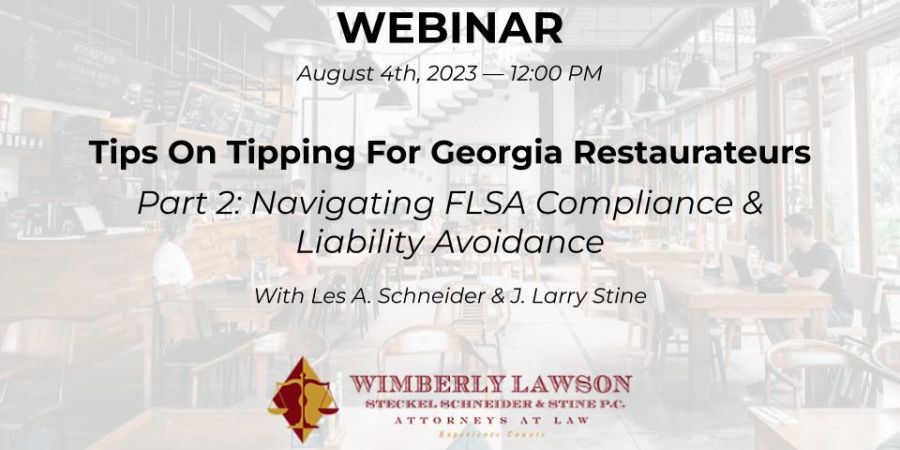Tips on Tipping
If you employ tipped workers, then this webinar is for you. Whether you are an experienced employer or just getting started in the restaurant industry, understanding the ins and outs of wage and hour requirements can be a challenge. Dive into this two-part webinar series hosted by The Georgia Restaurant Association and learn more about wage and hour regulations, notification requirements, record-keeping, deductions, overtime, and dual work.
These presentations were originally presented for the Georgia Restaurant Association (GRA).

Tips on Tipping for Georgia Restaurateurs — Part 1: Mastering Wage & Hour Regulations
June 12, 2023
Category: Webinars: Employment Law "Hot Topics"

Tips on Tipping for Georgia Restaurateurs — Part 2: Navigating FLSA Compliance & Liability Avoidance
June 12, 2023
Category: Webinars: Employment Law "Hot Topics"

TIPS: A Fresh Look at Tip Tax Exemptions & Their Implications
September 12, 2024
Category: Webinars: Employment Law "Hot Topics"